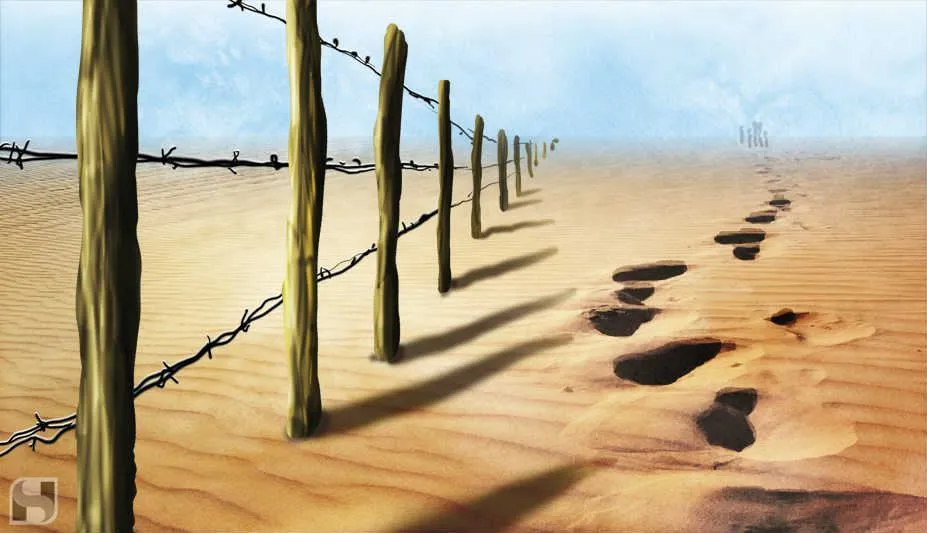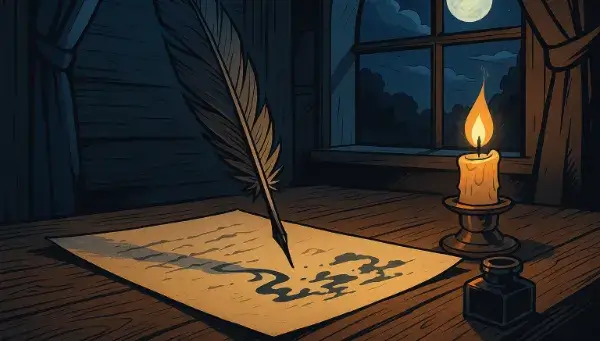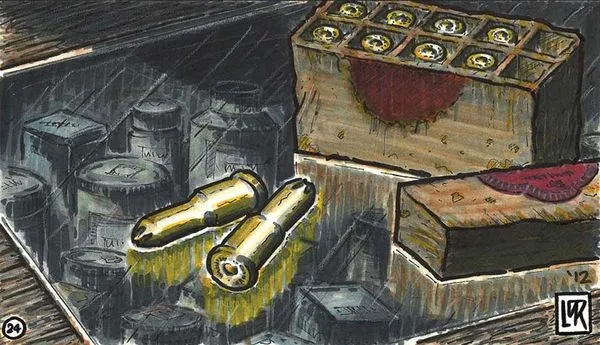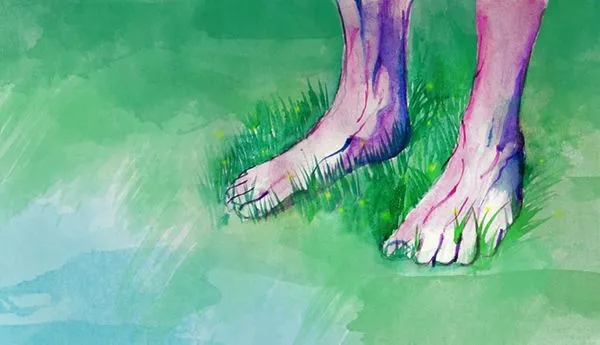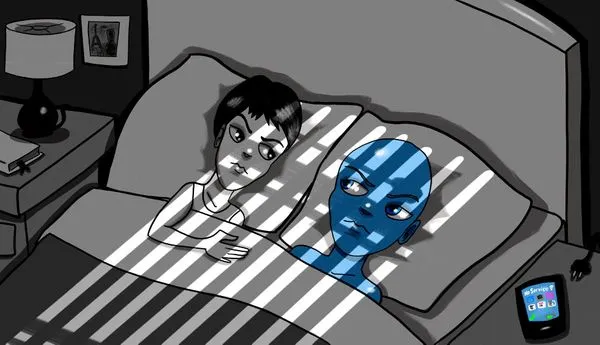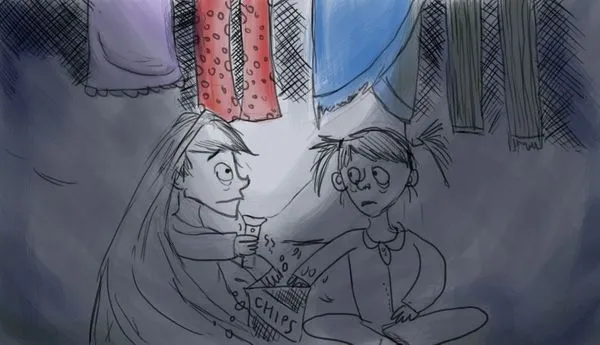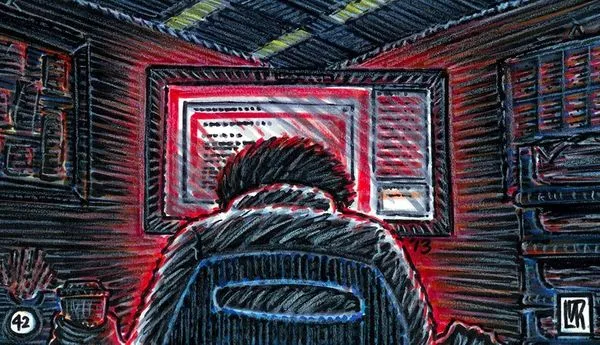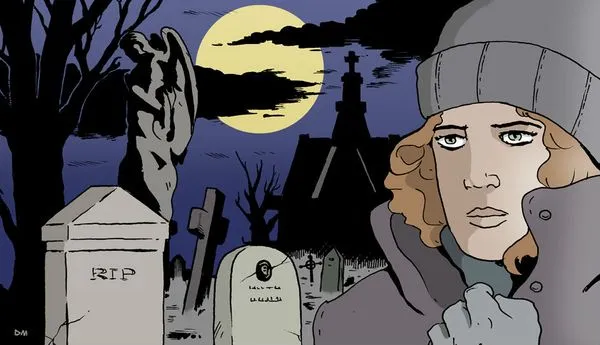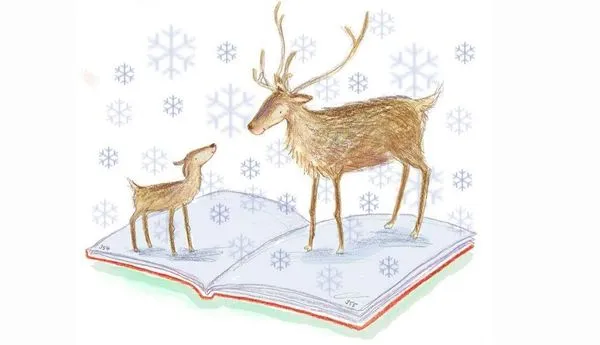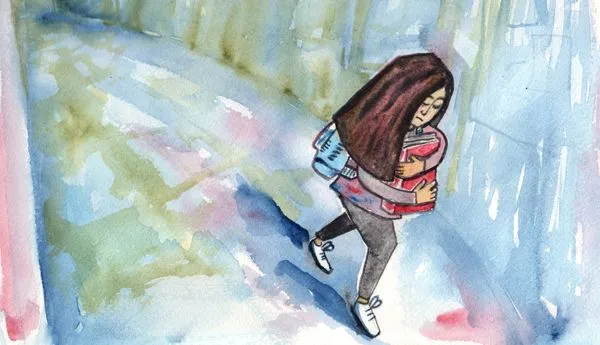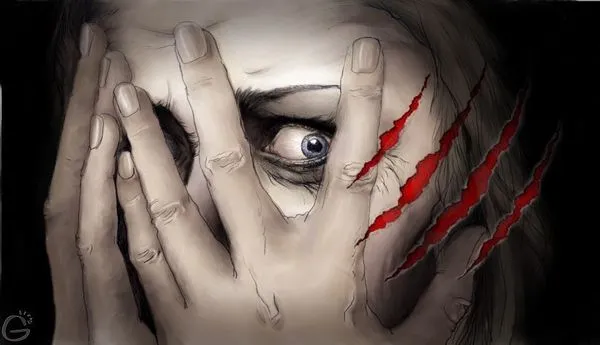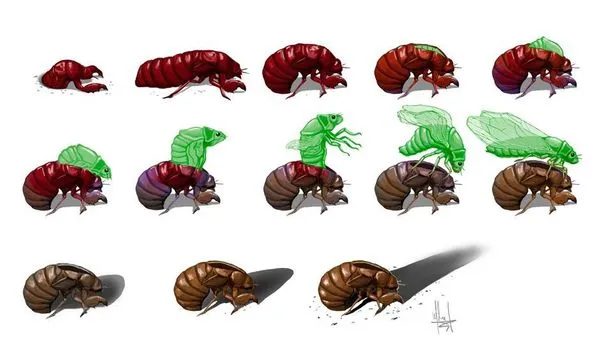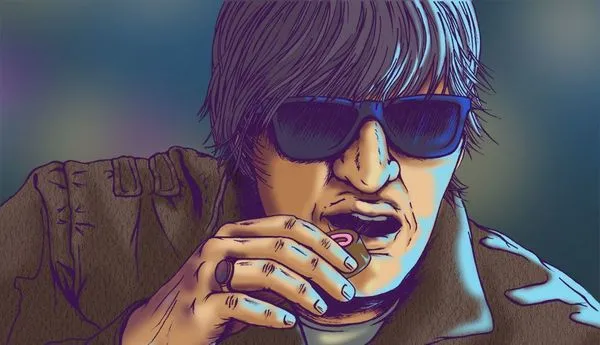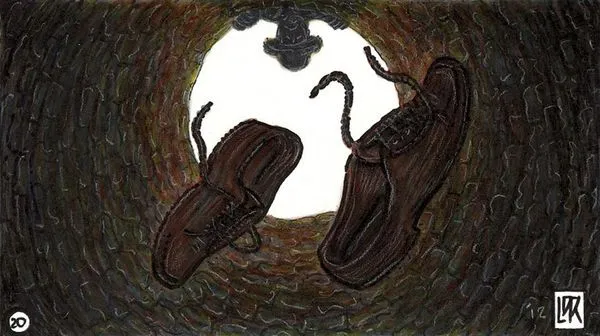The Walk
Published on 2014-07-21
“I can’t quite recall the moment it began, it just seemed to seep upon us like a rising floodwater or noxious gas. War crept up on us and only when it was fixed in our lives, did it announce its presence.”
I pause in my story and look up at the white woman. She nods her head, encouraging me to continue. Her face is filled with what I can only imagine to be pity. I don’t want her pity. I don’t want her to look down upon me.
“Please continue,” the woman whispers, as if afraid to conjure the horrors of my story out loud into this overheated room with the plastic flowers and fake wood floor.
I take a deep breath and continue.
“The bombs began and that was when the deaths really mounted up. Everyone lost a friend, a brother, a parent, a colleague… a child. Everyone lost. I kept my children home from school, I locked the doors and shrouded the windows shutting out the alien streets that were no longer as I knew them. We hid away like prisoners in our own home; but still the conflict found its way in. There were shortages of water, food, medicines and fuel. The electricity lasted a few hours a day if we were lucky. There was no life left — only death. My husband stopped going to work.”
I don’t tell her that he’d joined the rebels on the streets for a time; those who had started it all four long years ago with promises of freedom blown in with the changing of the seasons, with the Arab Spring. Tears run unchecked down my cheeks. The white woman looks down into her lap.
“Please, tell me about the walk?” she asks.
I recall the night that the raised voices overflowing with angry determination, filled the street below our apartment.
“We knew we had to leave. That night. I had considered it many times before then but I was not prepared. My husband shouted at me as I rushed about, stuffing possessions into bags and then emptying them out again. I didn’t know what we’d want or need, what I could bear to leave behind. I stared at a lifetime of belongings that in the end were just meaningless objects.
“My husband had organised a car for us, but it never showed. We stood shivering in the darkness of the alley by the shoemakers shop, and waited. We waited in the shadows until the dawn came and exposed us and we knew we could wait no longer. Daylight was not our friend.
“I took my sons by the hand and dragged their tired bodies behind me as I followed quietly in the footsteps of my husband. I followed him as I had done all of my married life, trusting his male superiority and hoping he really did know better. We walked through the transformed streets I had once known and headed for the border, for the desert where it was quietest. We had no papers; we would cross illegally into our neighbour’s land at the most remote section. If we made it that far.
“By the time we had walked the first day away, I realised how unprepared we were. I realised how meaningless the objects I had painstakingly packed in our bags were. I realised how small our chance was.
“We carried just one bag each and eventually most of the contents were discarded; cast off piece by piece during the walk along with our hopes and expectations.
“I realised we could be walking to our deaths,” I say. “It would be a more gradual, unobtrusive end than the bombs that crashed in the sky behind us — but death all the same.”
The woman stares at me. I cannot read the thoughts that dance behind her pale eyes.
“We’d passed by many families, and many more passed us by on the second day. Small caravans of strangers, all carrying their lives in bundles strapped across their backs. By the time we reached the desert we were exhausted, hungry and thirsty. We had a single, small bottle of water remaining for our family of four. We kept it hidden, I was afraid someone would take it. I was afraid of my countrymen and women — even the children. We were competing with them all, not all of us could cheat death.”
I drop my face onto my balled up fists, digging my knuckles into my eye sockets. Remembering.
“I remember how the desert wind would announce itself in a threatening whisper before it whistled through my hair, stung my eyes, whipped and tore at my clothes. I kept sons close beside me. Each step felt like three as my weight sunk into the sand. My calves ached and my legs burned. My tongue was swollen and dry in my mouth, my lips cracked. The bottle of water was almost empty and I became obsessed with checking it.
“The border — when we finally reached it — was no more than a muddy ditch. Hundreds of people crowded before us burdened with the weight of survival. The sense of sadness was suffocating.
“We waited for the signal from the army patrol and, as they shouted at us to move forward, the thought slid into my head that I was now a refugee. I loosened my grip on my sons’ small hands. I lost my hold on them. I lost them.
“People surged forward, sweeping my two boys into a flood of fear. I screamed for them, screamed at my husband and at the soldiers. But no matter how many people parted before me, they had gone.
“In the confusion shots were fired and then my husband was taken. His blood soaked the sand in a thick sticky red that was kicked about by the crowds — people who did not see and others who had seen too much.”
My shoulders sag. I am exhausted from this telling — the retelling and recounting — of my journey.
“Please, help me?” I ask the white woman who has promised to find my children. I stare at the Red Cross embroidered into her t-shirt — the symbol of peace, of hope.
“I followed that man for so many years, but now I walk alone. I must find my sons and bring them to safety. They need their Mama. Please.”
The Red Cross helps to restore contact between families separated by armed conflict, disaster or migration by using the global Red Cross/Crescent network redcross.org.uk/What-we-do/Finding-missing-family/International-family-tracing

